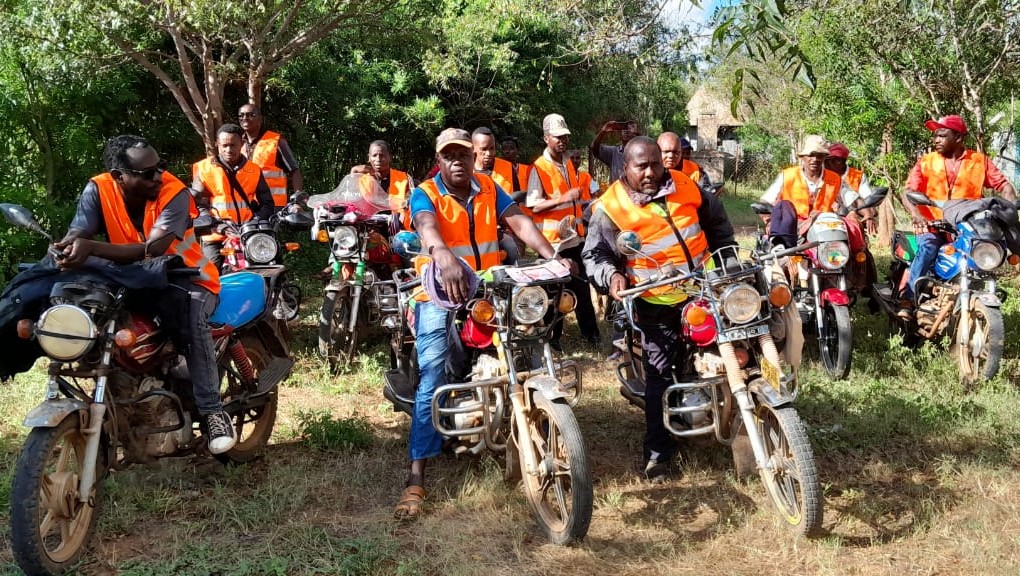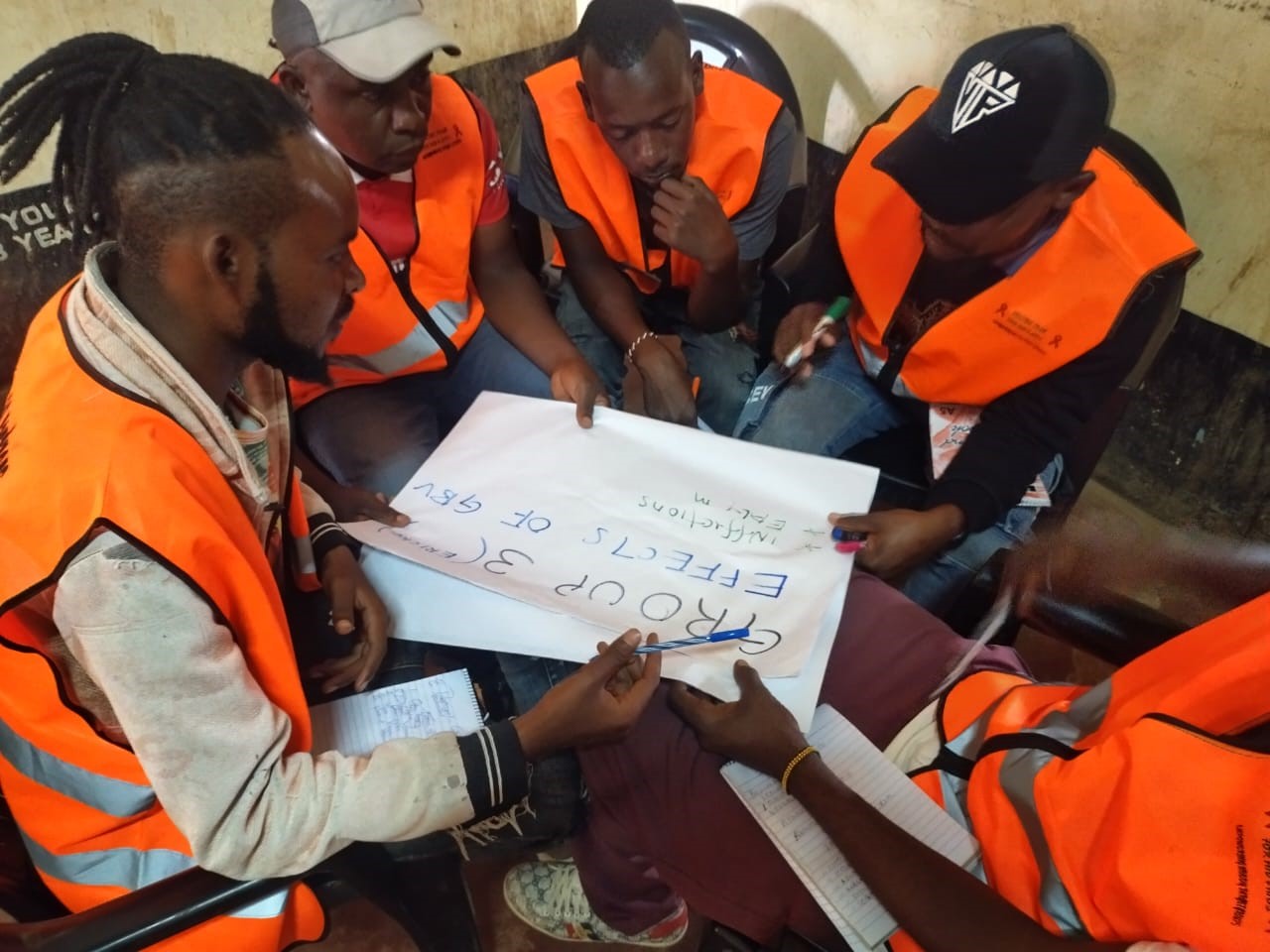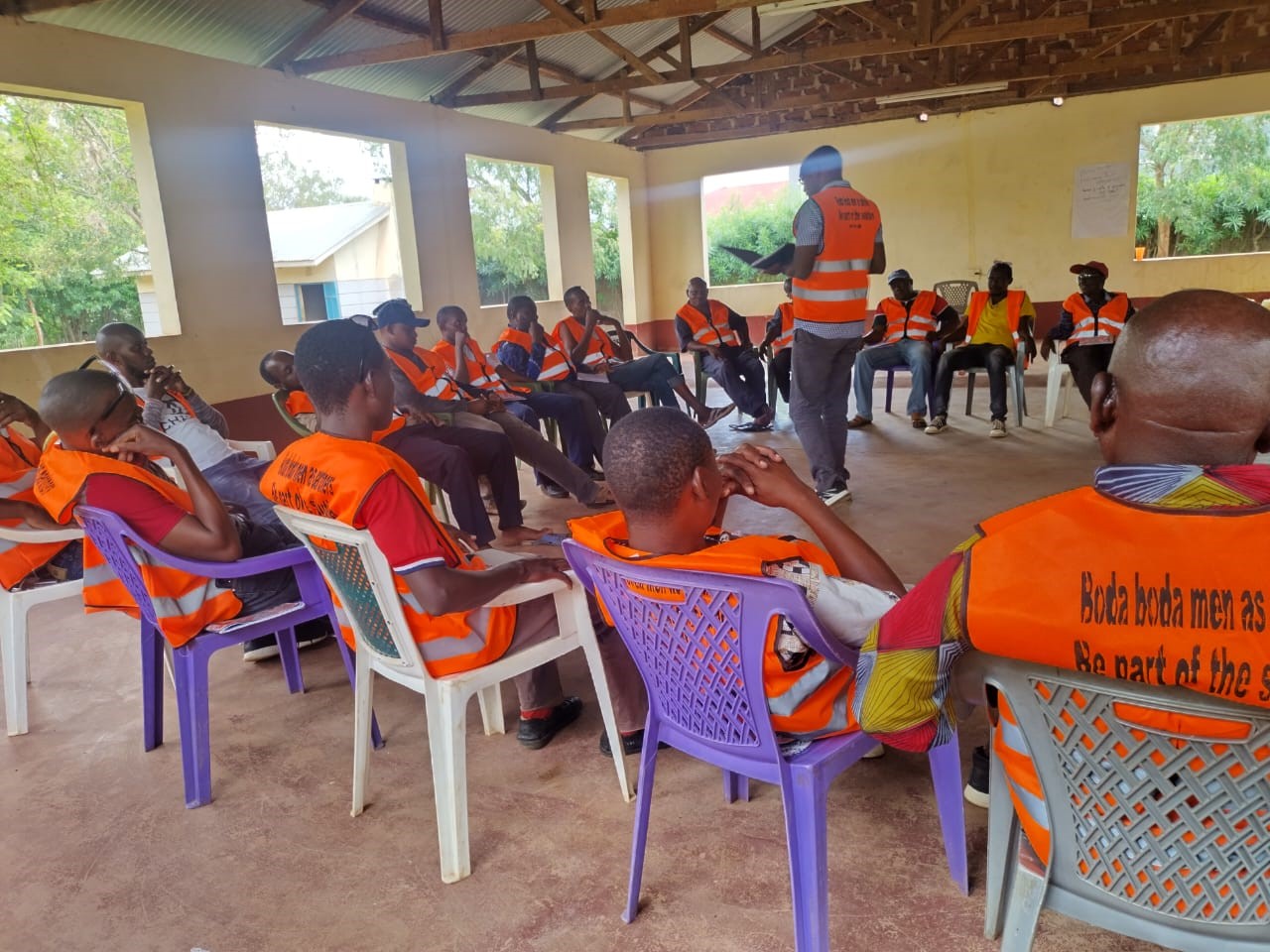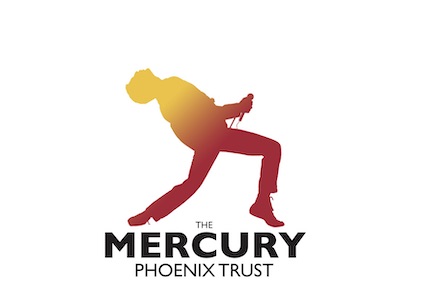Since 2024, Advantage Africa, together with our local partner Rescue Team, has been working in Makueni County in eastern Kenya to address extremely high levels of gender-based violence (GBV).
Targeting men
In an innovative approach, we choose to engage men as a means of reducing violence against women. Specifically, we targeted motorbike taxi drivers, known locally as boda-boda riders.
While this group has a strong reputation for being untrustworthy and also as perpetrators of sexual violence, their deep integration in the community and frequent interactions with the public also affords them potential to serve as influencers, and even as champions for change. Therefore, rather than viewing them solely as part of the problem, the project aimed to positively engage boda-boda riders, to become a key part of the solution.
Project Activities
Working through the leaders of their local trade associations, we invited 20 boda-boda riders from six different locations (total 120) for 5 days intensive training workshops, followed up with refresher training and mentoring. During the training, it soon became evident that the men were troubled by their local reputation as dishonest perpetrators, and were keen to find ways to change this perception. One trainee observed ‘We, as boda boda guys have never been given training by anyone before, this is a first, and its good’
Carefully designed to foster respect, openness, honesty and non-judgement the training groups soon became highly engaged. The training covered the definition and forms of sexual and gender based violence, the impact on women, girls, families and communities, as well as proper response protocols, health implications and legal consequences. Critically, the men took up the opportunity to examine the deeply entrenched patriarchal norms within their social and cultural context, reflecting on their own beliefs and behaviours concerning gender and power.
After training:
• 100% could define GBV and Sexual and gender-based violencec (SGBV)
• 98% took action when witnessing GBV
• 91% felt confident discussing GBV publicly.
Burgwin Muthoka, local project coordinator and lead facilitator from Rescue Team commented 'Before training most of the guys had no idea about gender-based violence. They didn’t know about the consequences for survivors, and they had no idea how severe the punishments can be.'
Project Impact
A comprehensive evaluation was completed in April 2025 which details the impressive positive impact of the project. The evaluation revealed that participants had not only gained a deep understanding and knowledge of GBV but had also undergone significant shifts in their own attitudes and behaviour, directly contributing to improved safety and well-being for their partners and families. Significantly, many men had also embraced roles as local GBV champions, and during follow-up training they provided compelling accounts of how they had intervened to prevent violence and respond to serious incidents in their communities, challenges that they would have previously felt unprepared to take on.
‘I expected good engagement from the boda-boda guys – but actually their enthusiasm and commitment went far beyond my expectations. They have totally embraced what we are trying to do.' Burgwin Muthoka (Project Coordinator – Rescue Team)
Most importantly, the evaluation asked women about any changes they had experienced as a result of the project. Many wives and partners of the trained men explained that, before the project, violence, emotional abuse, and controlling behaviour were common features of their daily lives. However, since the training, they had seen significant changes. Many reported that the violence and abuse had ended, and that communication around sex and consent had improved, with coercion replaced by mutual discussion. Men had become more respectful of their partners’ opinions, and many began sharing domestic chores. Controlling behaviours also decreased, with some men now supporting their wives to start small businesses outside the home, something they had previously forbidden.
Summary
The project demonstrated great success in achieving its main aim of preventing violence against women and girls, better respnding to incidents and promoting respect and gender equality more widely. It proved that a carefully designed and focused intervention, delivered over a short period and with modest resourcing, can yield very positive and sustainable outcomes, not only for the direct beneficiaries but also for their families and the wider community. The evaluation also highlighted that the project approach is easily scalable and suitable for replication across other locations in East Africa.
The local Chief explains 'some sort of miracle'
We sincerely thank Mercury Phoenix Trust and Lancaster University for supporting this work.





